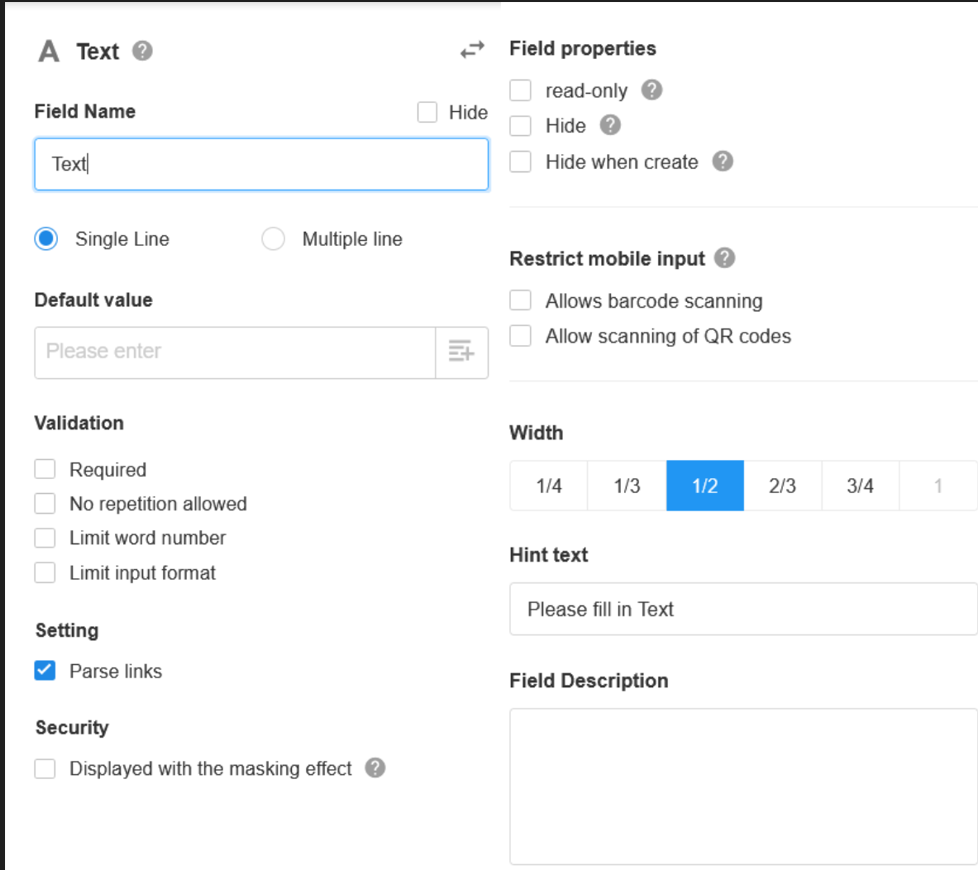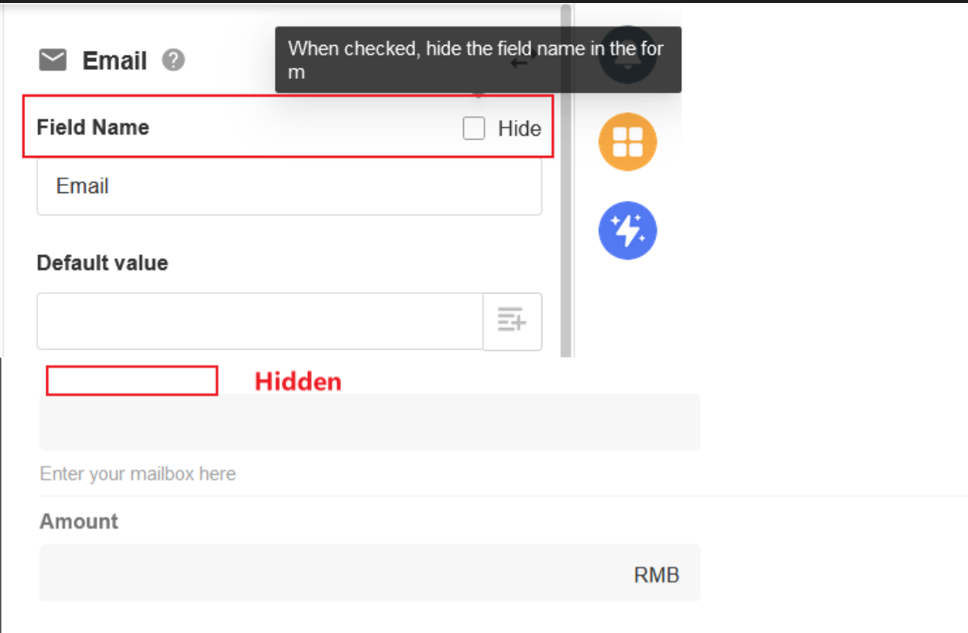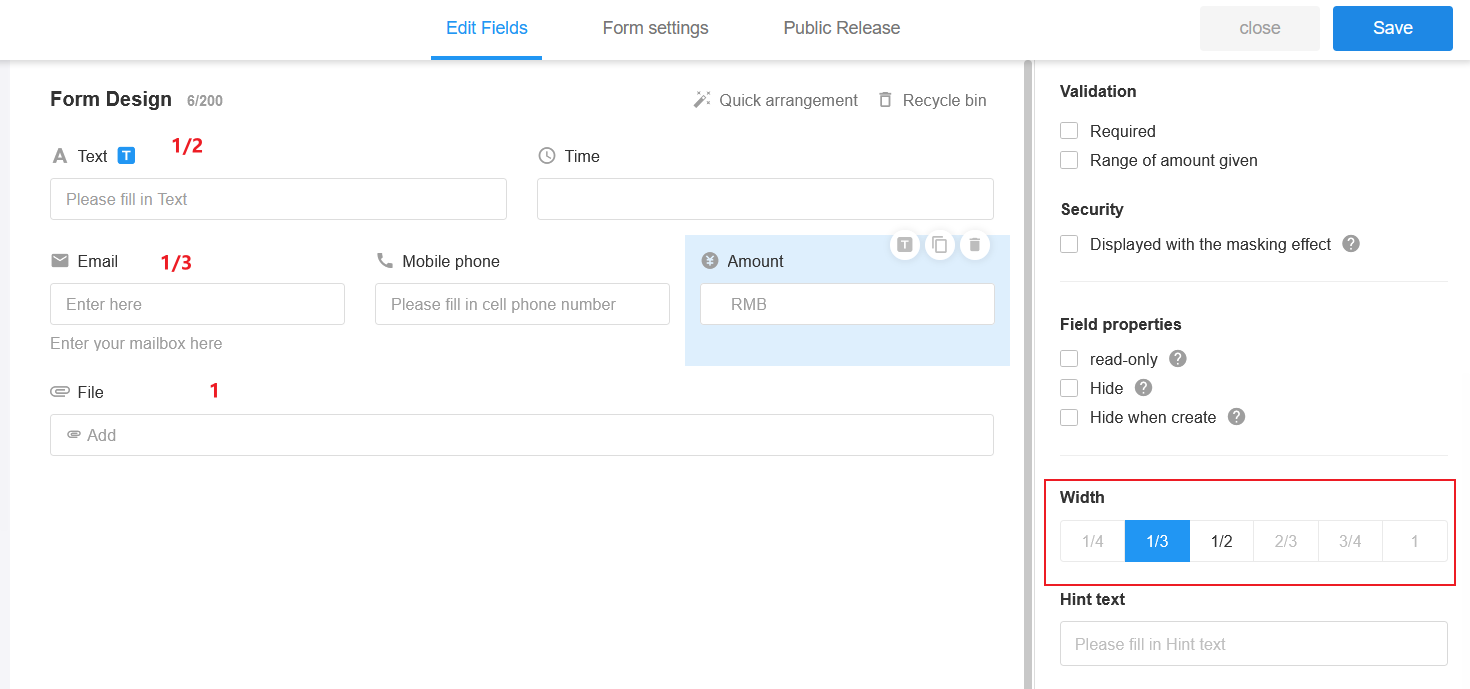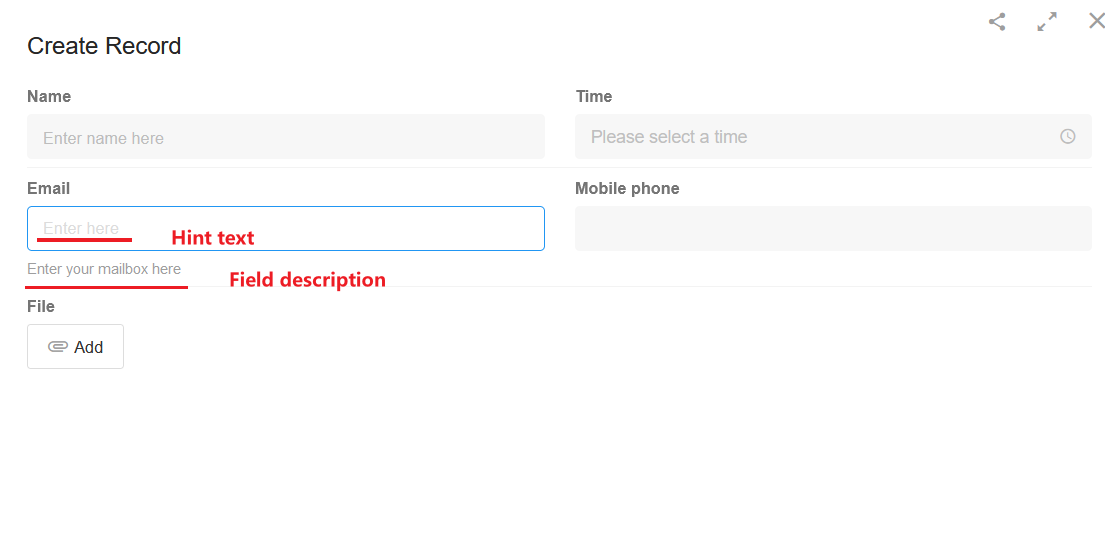Field Property
After selecting the appropriate control according to the characteristics of the field data, you need to configure the properties of the field. Each field can be configured with the following basic properties.
- Field Name (Hide)
- Required
- No repetition allowed
- Default Value
- Read-only
- Hide
- Hide when create
- Width
- Hint Text
- Field Description

Field Name (Hide)
An appropriate field name helps to better identify the field content. Sometimes you don’t need to show the field name when displaying, but only the field content, then you can check [Hide].

Default Value
When a new row of record is added, the content of the record can be automatically filled by setting the default value. Static and dynamic default values are both supported.
More details about default value
Required
When a field is required, if the field is empty, it cannot be saved and there will be a prompt.
No repetition allowed
Some fields, such as job numbers, are often unique, so when adding or editing records, if you enter duplicate data, there will be a prompt and cannot be saved.
Read-only
If read-only is checked, the field cannot be filled directly when adding or editing records. However, it can be modified to editable through workflows or business rules.
Hide
If [Hide] is checked, the field is always not displayed when adding or editing records. Such fields can be used as transit fields, which are only involved in calculations and do not have to be displayed to users.
Hide when create
If checked, the field will not be displayed when adding records, but will be displayed when viewing and editing records. For example, in an Employee worksheet there is a termination field, but when adding an employee, this field is not needed, then you can check [Hide when create].
Width
In the form, you can put up to 4 fields per row. The shortest field can be set to 1/4 the width of the entire row, and the longest can be the width of the entire row.

Hint Text and Field Description
They can help users understand what needs to be filled in the field.

Have questions about this article? Send us feedback